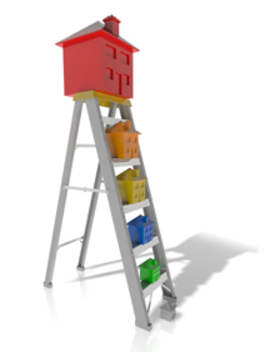 Investing in real estate is commonplace but it’s not always a simple way to make money. While purchasing bricks and mortar is often viewed as a relatively safe bet, it’s essential to understand what buying and developing property involves. Before you sign on the dotted line, here are some factors to consider.
Investing in real estate is commonplace but it’s not always a simple way to make money. While purchasing bricks and mortar is often viewed as a relatively safe bet, it’s essential to understand what buying and developing property involves. Before you sign on the dotted line, here are some factors to consider.
Your budget
The success of any type of development relies on being able to balance the books and tip the scale in your favour. Before you invest money in real estate or you buy land with a view to building new houses, for example, always set a budget. Your budget should cover every aspect of the acquisition, including the price of the house or plot, fees and charges and any work that is required to reach the point where you let or sell the property. Analyse your finances, figure out how much you can afford to spend and assess the level of risk. Conduct extensive research, gather information about specific locations or areas and use data to inform decision-making. There are several factors that influence the value and saleability of houses and apartments. You need to make sure that the odds are stacked in your favour before you make any significant moves.
 Your plans
Your plans
There are multiple options when it comes to buying property or putting money into real estate ventures. Many people choose to buy a fixer-upper and then sell it on or let it out to tenants. Buying holiday homes is also a popular choice and it’s also common to invest in a second home to let. Alternatively, there are options including buying land to develop and considering commercial or residential ventures, such as developing units for retail or hospitality or building flats. If you have plans to develop land, it’s crucial to think ahead and draw up plans. What will you do when you finish the building work and the properties or commercial premises are ready for use? You could consider selling or you could let the units or apartments and work with a block management company to save you time and stress. Weigh up the pros and cons of the options on the table, ask agents to provide valuations and figure out where you stand financially. You might decide to hang onto the development and then sell at a later date, for example.
Your target buyer or tenant
When you invest in property, one of the most important commandments to remember is to use your head over your heart. Locating a house or an apartment for investment purposes should be a very different experience from finding a dream home. Focus on the numbers and go into your search with an ideal buyer or tenant in mind. Think about what that individual or group would look for in a property and consider the location very carefully. If you’re marketing to families, for example, proximity to good schools is essential. If you have young professionals in mind, it’s beneficial to be close to transport links and amenities like shops, bars and cafes. When you view properties, always put yourself in your tenant or buyers’ shoes.
Property development can be incredibly lucrative but there are always risks involved. If you plan to buy land, you’re looking for a house to let or renovate, or you have grand plans for a new apartment block or commercial premises, always bear these essential factors in mind.
You must log in to post a comment.